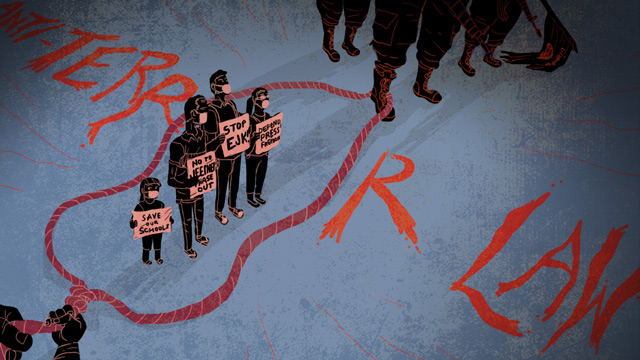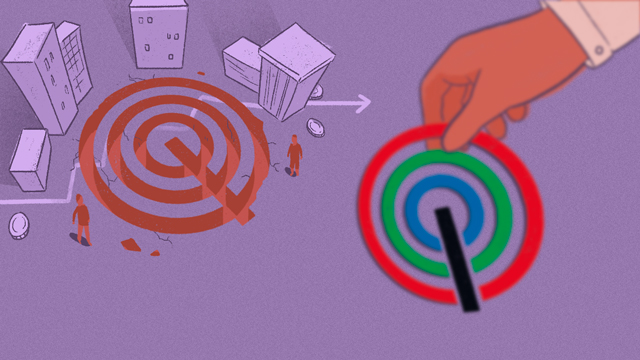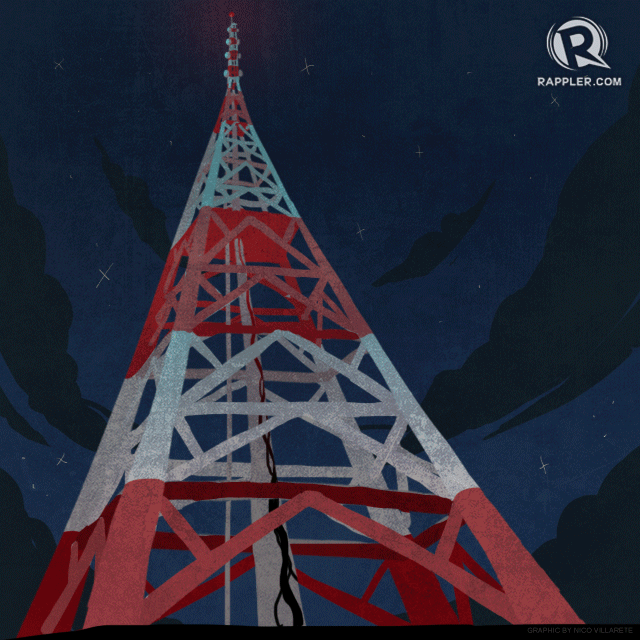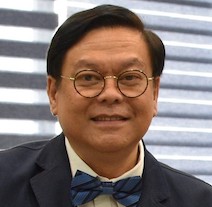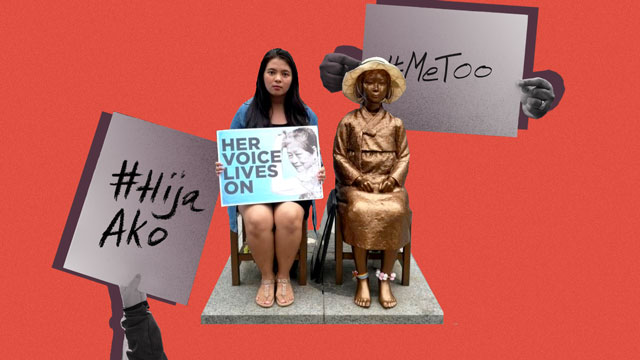![]()
Last July 1 marked the 4th year in office of President Rodrigo Roa Duterte. On July 27, he is set to deliver his 4th State of the Nation Address (SONA).
I venture to make my own assessment of Duterte’s performance, which Malacañang has touted as “great.”
I will not dare post a score within a scale of 1 to 10. As this discourse will show, it will be an offense to mathematics to even attempt to give Duterte a grade for leadership.
As a well-known critic of the President, and given that I have been unjustly deprived of my liberty for 3 and a half years now as a direct result of his personal and political vendetta against me, people might dismiss my assessment of the leadership as lacking in objectivity or being the product of enmity. Well, my situation and my history with the President are facts – undeniable and unavoidable. But that should not prevent me from speaking of my honest personal assessment of his leadership in the last 4 years.
However, unlike the sycophants who will give him absurdly high grades, I cannot just give a simple answer. My burden is heavier, as I have to justify my assessment. I shall assess him, as follows: (a) How well he handled issues, fulfilled his campaign promises, and responded to more or less unavoidable crises; (b) How well he exemplified and promoted Filipino core values; and (c) How well he measured against common leadership traits.
How well has Duterte handled issues? I have identified 6 main issues or areas of concern:
Corruption. We have seen several of his appointees and allies be implicated in controversies. Let me just recall two of such appointees. There is former Secretary Vitaliano Aguirre II’s, who was implicated in the P50 million Bureau of Immigration extortion scandal back in 2016, involving the alleged release of 600 of the 1,316 Chinese nationals who were caught illegally working at the Fontana Leisure Park and Casino in Clark, Pampanga owned by Macau-based gambling tycoon Jack Lam. Mr Aguirre, despite evidence of his complicity in the scheme, was never seriously investigated. And later, the same Vitaliano Aguirre II who, despite being removed from his post since 2018 for exonerating accused big-time drug lords Peter Lim and Kerwin Espinosa, is alleged to be the protector of the “pastillas” syndicate operating – again! – in the Bureau of Immigration. Where did the investigation go?
There is, of course, also Nicanor Faeldon, who, as the highest official in the Bureau of Customs, was implicated in the alleged smuggling of P6.4 billion worth of shabu from China into the Philippines. While refusing to attend the Senate investigation – for which he was held in contempt and detained – and even after he resigned, Duterte decided to allow him to lay low for close to a whole year in another appointive position as deputy administrator for operations in the Office of Civil Defense. When questioned, Duterte claimed his “exclusive prerogative” as President – as if those are magic words that makes questionable appointments less questionable, but it only proved that the Presidency is being treated as a personal advantage to benefit the President and “his own.”
And what happened to the favored Faeldon?
He was again appointed to another powerful post and, thereafter, finally fired for something that he claims was just him following the law. I remember that some fellow Senators revealed that, in his very short stint as BuCor chief, he attempted to realign the BuCor budget to favor penal facilities in his home province, where Duterte himself had previously revealed Faeldon intended to run for governor.
The apparent recidivism is a direct result of the lack of accountability for corrupt practices. So what does that say about the President’s leadership, if that is the color of sheep he leads?
Drug problem. By now, people know what I will say about the War on Drugs. It is a war against people, the poor – not against illegal drugs! Because, while thousands of poor Filipinos died from merely being “listed” or suspected as being involved in drugs, the big-time drug lords are never held accountable. But don’t take my word for it.
Again, there was the mysterious illegal shipment of P6.4 billion worth of shabu.
But let us give the President the benefit of the doubt. That happened in 2017. Well, what of the fact that, during the lockdown back in April of this year, P400,000-worth of shabu was seized from a vehicle belonging to a local government unit, the municipality of San Mateo in Rizal, as it was being transported to the towns of Binangonan and Angono? The vehicle belongs to the government. Strict lockdown protocols were in effect. If they can be so brazen even then, can you imagine how brazen they have been under normal conditions? (READ: 4 years on, climate of fear and impunity blocks justice for Duterte’s drug war victims)
Just last month, Lt. Col. Jovie Espenido, former Chief of Police of Albuera, Leyte, who has since been reassigned to Eastern Visayas, claimed that Kerwin Espinosa has become more powerful now because he is still able to transact in illegal drugs even while under the custody of the DOJ’s Witness Protection Program, particularly, the National Bureau of Investigation, as a supposed “witness” against me.[1]
Espenido claimed that Espinosa is “behind illegal drug operations in Pampanga, Cavite, and Bulacan and the cities of Pasay and Taguig in Metro Manila.”[2] In particular, he claimed that Espinosa is “behind the P5.6-billion shabu seized in Bulacan” after the arrest of some of the latter’s alleged associates, including a Chinese national, barely a week before the country emerged from lockdown, and “48 kilos of shabu valued at P336.8 million [that] were recovered in the operations” last May 23 that also resulted in the death of two of Espinosa’s alleged drug couriers.[3]
Everyone from the Presidential Spokesperson to DOJ Secretary Menadro Guevarra and DILG Secretary Eduardo Año are claiming that the matter is being investigated. But is it seriously being investigated? Or will it again be swept under the rug until it is forgotten, and everything resumes to be “business as usual” for these big-time drug lords once again?
Is Kerwin Espinosa too valuable a “state witness” against me to let go from the WPP? Drug lords and drug convicts gaining a protected status is yet another hallmark of the current dispensation.
It is very disturbing to see how brazen and powerful criminal elements become when they see that the “War on Drugs” only targets the poor.
And don’t take my word for it that the PNP has been weaponized against defenseless people. When news broke of the shooting incident in Jolo, Sulu that resulted in the death of 4 intelligence officers of the AFP at the hands of members of the Jolo PNP, no less than two high-ranking army officials – Maj. Gen. Corleto Vinluan, head of the anti-terror Joint Task Force Sulu, and Army Chief Lieutenant General Gilbert Gapay – immediately felt the need to point out that since the PDEA was not involved, this could not have been connected with illegal drugs. Even the Army believes that drug suspects meet bloody deaths at the hands of the police before they are ever brought to justice.
Protecting freedoms. As a President, he swore to protect and uphold the Constitution, which includes protecting and upholding the freedoms guaranteed by that fundamental document. Since he is the Chief Executive – not king or sovereign – he is not at liberty to discard the Bill of Rights, or any portion that he deems inconvenient. But what has happened to the freedoms he is supposed to be protecting?
There is, of course, the burning issues about the reprisals against media and critics of the government. But even ordinary citizens are being unlawfully silenced!
Peaceful protesters – who are following the physical distancing guidelines that his government promulgated, during a time when he himself ordered the reopening of businesses and a return to normalcy – are arrested for peaceably and responsibly exercising their fundamental freedom to peaceably assemble and to express themselves. In contrast, “VIPs” are disregarding safety protocols for the most frivolous reasons, like mañanitas, with impunity.
Freedoms that are fundamental to our democracy are not surrendered even during crises – they may be regulated, but they can never be taken away. If the government has not set parameters for alternative ways to effectively petition the government for the redress of their grievances, then such is the government’s failure. Citizens who are respecting and following the law in the exercise of their constitutional rights ought to be heard not silenced, regardless. A President with even passable leadership capabilities would not need reminding of that fundamental duty.
Sovereignty. What more should be said? Our fishermen are dying. Our President delayed instituting travel bans because he was afraid of offending a particular foreign nation. While our people are placed at risk and outrightly killed, our government tiptoes and kowtows to this foreign nation. Appeasement and diplomacy is one thing: subservience and the inability to grow a backbone is another.
And the dangers abound, and is growing in number and variety in the last 4 years.
Just days ago, it was reported that the Pakistani government is attempting to renegotiate repayment of Chinese loans associated with Belt and Road Projects that were revealed to have been overvalued. A similar scenario in the Philippines could destroy our national economy, and, with it, our sovereignty.
There have also been the constant employment and immigration issues caused by the influx of Chinese nationals flooding into the country to work for Philippine Offshore Gaming Operators (POGOs), many of whom are allegedly entering and working illegally. In the face of the pandemic, the problem has taken on a serious public safety aspect, after illegal, makeshift underground hospitals, where Chinese nationals infected with the coronavirus are being treated, were discovered illegally operating and dumping medical waste in several parts of the country, including in Pampanga, Makati, and Parañaque.
Now, more than ever, we need a leadership that can lead and negotiate a fair deal, and has the will to protect the Filipino people’s interest by saying no to contractual and extracontractual terms that are disadvantageous to the government. Otherwise, we will find ourselves landless, jobless, and powerless in our own nation.
Political will is not only the will to go against public opinion. It is also the will to take the road that goes against personal stakes and interests.
Terrorism. More than 3 years of Martial Law over 1/3 of the country, after an encounter in one city, begs the question: what are they really trying to accomplish in Mindanao?
Then there is the Anti-Terror Law – the very thing that the protesters are rightfully questioning within the bounds of their constitutionally protected rights. If Martial Law and terror of the government is the “new normal,” is the government really winning the war against terrorism? If your government is trying to know everything in your private life in order to use it against you, and to control your very thoughts and actions: who needs terrorists? The government is doing an excellent job of terrorizing and holding the people hostage without the terrorist’s help. There is terrorism, and there is state-sponsored terrorism.
Pandemic. If there is one saving grace in this pandemic, it is not the President and his rambling, confusing, incomplete, and delayed actions and statements. It is the Filipino people: meaning the frontliners and the ordinary people themselves. They have taken this pandemic seriously and have responded better than the self-entitled people, who feel that they are rich, powerful, and important enough to be above following the strict protocols. (READ: Pandemic unravels Duterte's 2016 promise of decisive leadership)
From the delay in imposing travel restrictions, to the delay and incomplete delivery of relief assistance to those in great need for it, to the in-fighting and corruption that delayed the testing and disaster response of the government, to the ill-conceived order to open the economy without providing for mass transportation, as well as to the other harmful attempts at window-dressing, such as incentivizing movement or return to the provinces in the middle of a pandemic – it is hard not to criticize. Not because we want the government to fail – I want the government to succeed, for no other reason than failure would mean ordinary Filipinos will suffer – but because to keep quiet, to stop asking questions, and to stop demanding better actions from the government will only mean that more people will be forgotten, neglected, and left to die.
How well has he exemplified and promoted Filipino core values of love, unity, peace, tolerance, compassion, trust, respect, fidelity, and honesty?
He has been the most divisive influence in the whole society – not just politics or government – in the past 4 years: pitting Filipinos against Filipinos. Every response he has to criticism is to lash out at the critic. Anyone who disagrees with him is the enemy.
Civilized discourse has become lost under his presidency. Instead of responding to issues, he attacks the person, and sics his supporters against their own countrymen.
He promotes misogyny, violence, molestation, and devaluation of women as sexual objects. He disrespects members of the LGBTQ community. He uses offensive words that should never be uttered within the hearing of impressionable children and any adult who has any sense of self-worth, even at a time when everyone has no choice but to tune in in order to have the best chance of surviving and keeping their loved ones safe during the pandemic.
He respects no one, certainly no one more than he respects his foreign benefactors – not even God, whose name he takes in vain willfully and belligerently.
For every controversial thing he says, his people will claim he never said them – even in the face of incontrovertible proof.
Some Filipinos may have found his antics amusing – much as someone might be intrigued by something so foreign or alien to our experiences. But that only drives home how little he resembles, and how inadequately he represents and promotes the core values that make us Filipinos who we are.
How well has he measured against common leadership traits?
Courage. Accountability. Results.
I think the answer is clear.
He has plenty of bravado and machismo, but he lacks courage to stand up for Filipinos when it counts.
He is good at punishing people who cannot defend themselves, but what about the abuses that his people have committed? What about taking responsibility for his own failures? For the deaths and suffering that his recklessness and willfulness has caused? He bent backwards and shamed the nation in order to withdraw from the International Criminal Court precisely because he fears being held accountable.
Count the deaths. Count the sufferings. Count the fear and division he has cast over our nation – such that even those who claim to approve of his “War on Drugs” is afraid of being wrongfully targeted under it. Now, count how many of his allies and friends have escaped unscathed from all the scandals they created. Finally, count the campaign promises he has actually accomplished. (READ: As pandemic persists, are Filipinos still satisfied with Duterte?)
Duterte claimed to free us from our problems, but he has only managed to strangle us with chains forged in a foreign land, and pulled by the hands of those who should be protecting us.
We have become a people that is terrorized by its government, while that government is composed of individuals who have been willingly and even gleefully offering our country as a tribute on a silver platter for the exploitation of a foreign government.
All these point to one conclusion: the last 4 years came and went, with Filipinos being worse off under Duterte’s so-called “leadership.” – Rappler.com
Senator Leila de Lima, a fierce Duterte critic, has been detained in a facility at the Philippine National Police headquarters for years over what she calls trumped-up drug charges.
![]()
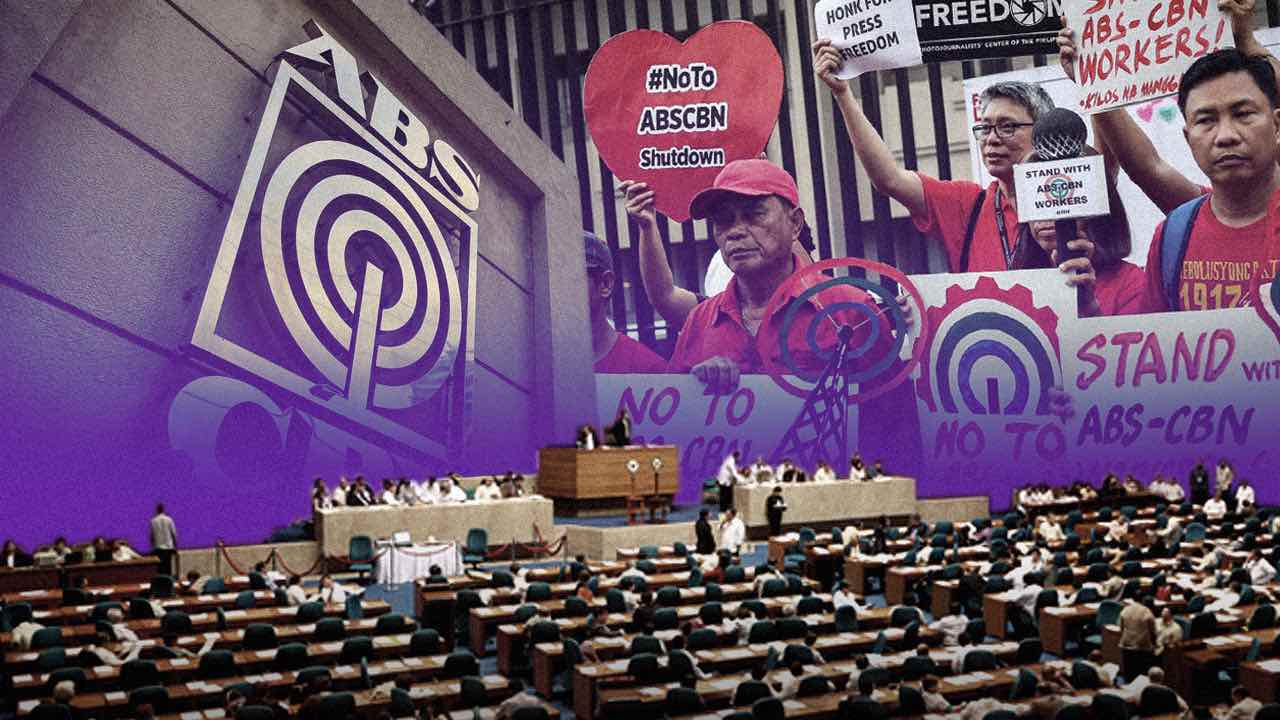
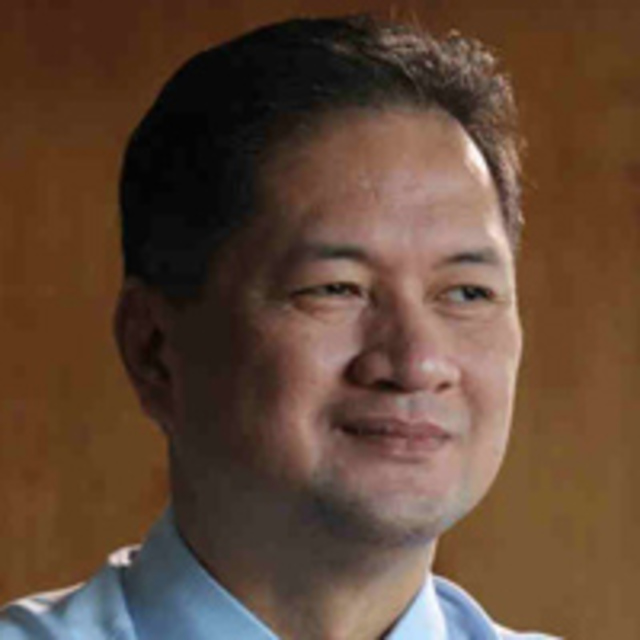
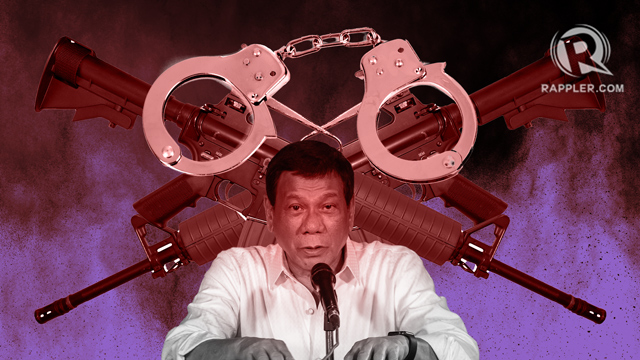
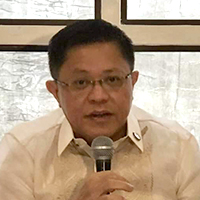
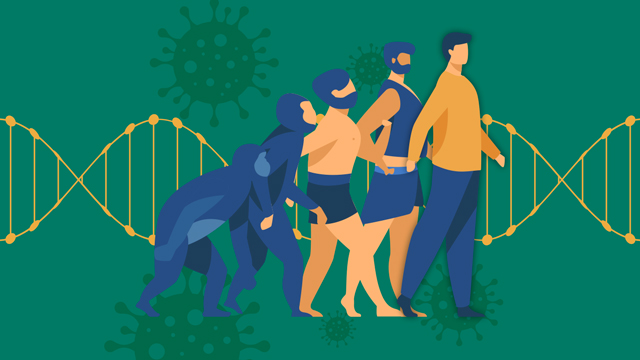
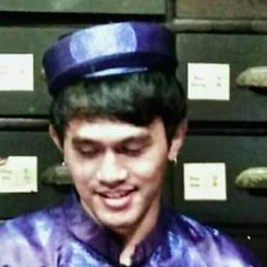



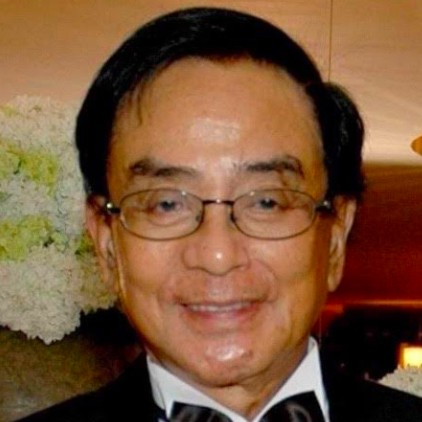



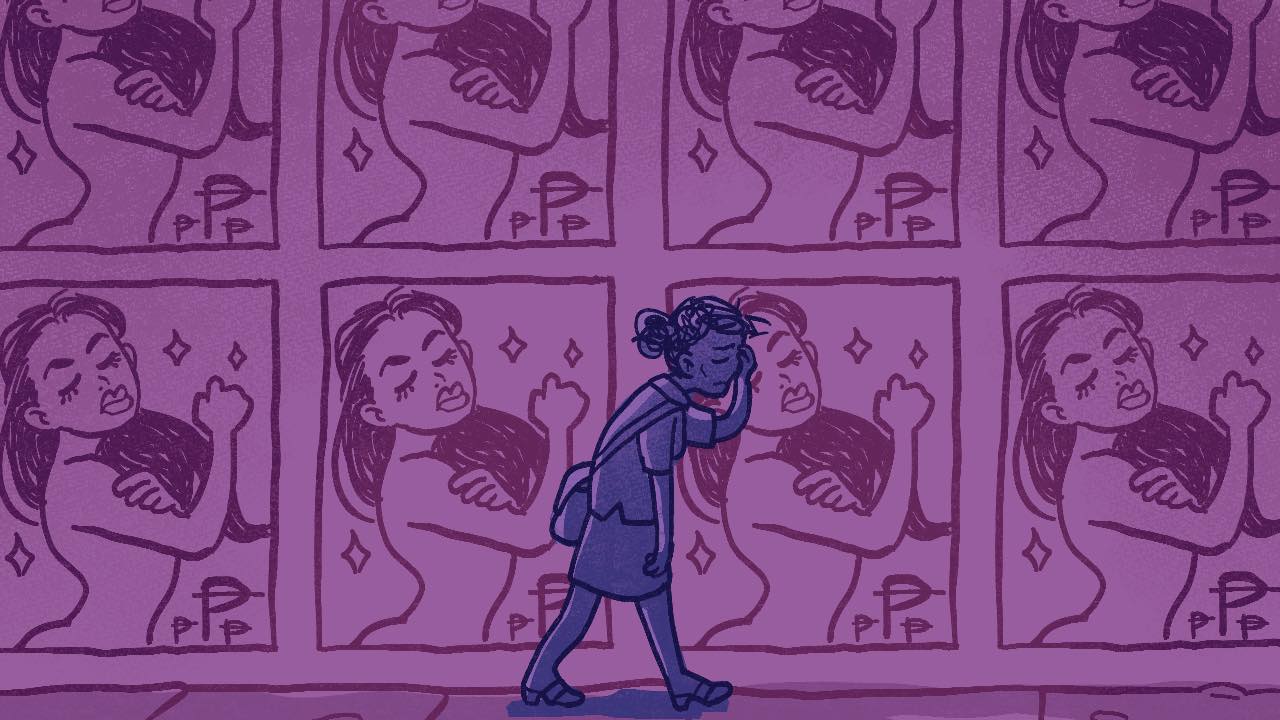



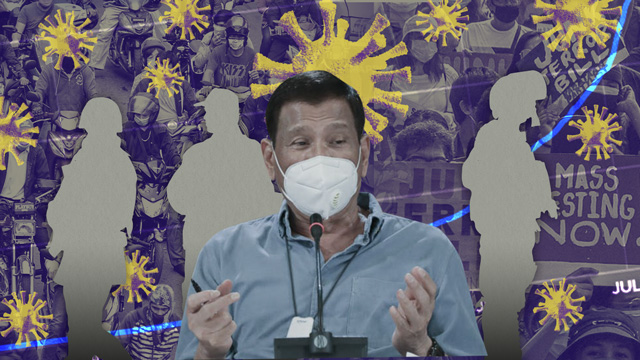



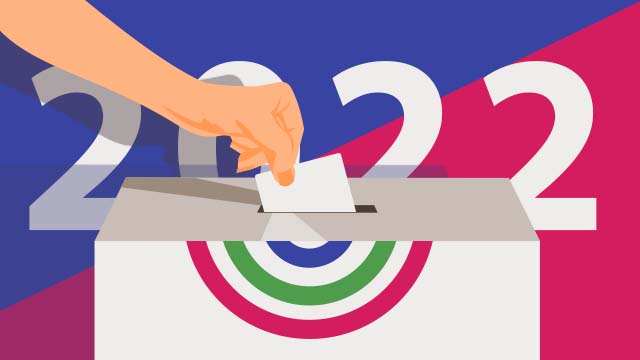
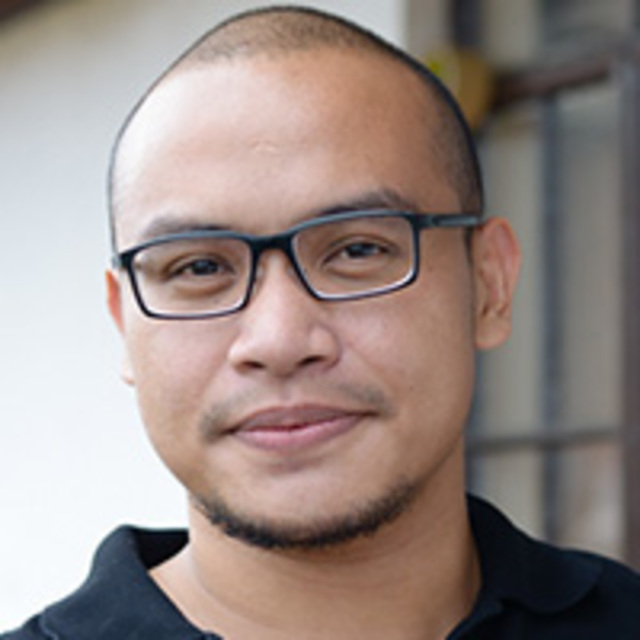 Since after 70 pro-administration members of a House of Representatives
Since after 70 pro-administration members of a House of Representatives 